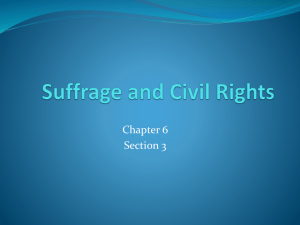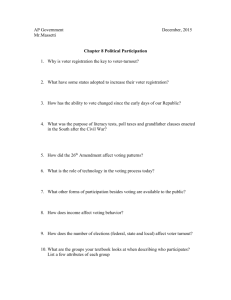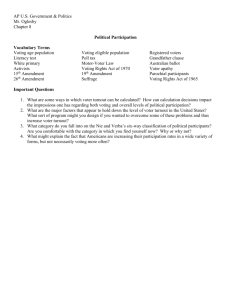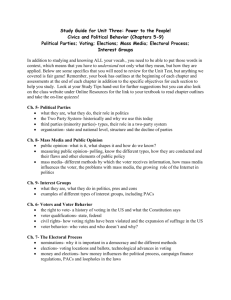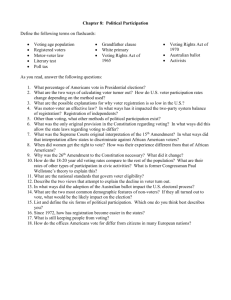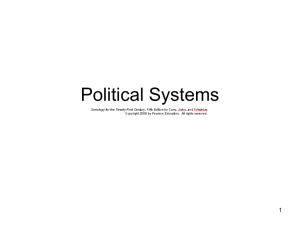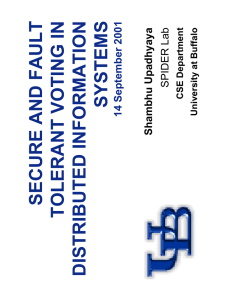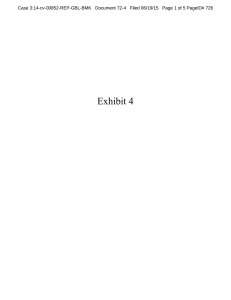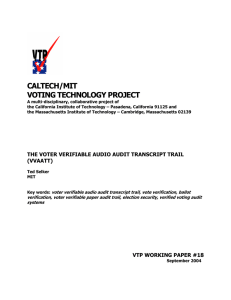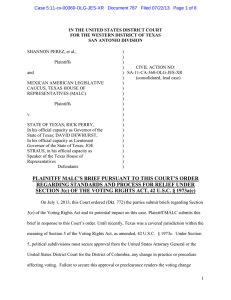File
advertisement
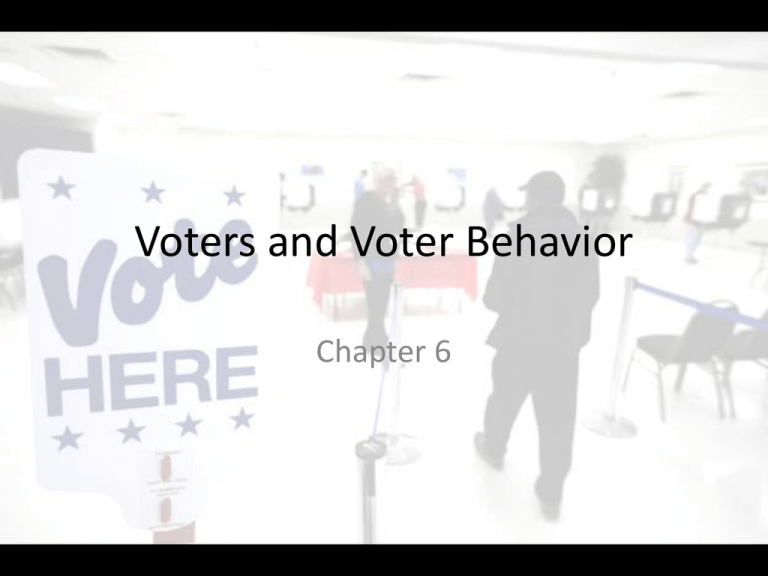
Voters and Voter Behavior Chapter 6 Section 3 SUFFRAGE AND CIVIL RIGHTS The 15th Amendment • The right to vote cannot be denied to any citizen of the United States because of “race, color, or previous condition of servitude.” (1870) – Establishes principle; but for 90 years the federal government did not enforce it. • Literacy tests, poll taxes, registration requirements, gerrymandering, “white primaries” and violence were used to keep African Americans from voting. – Smith v. Allwright (1944) struck down white primaries. – Gomillion v. Lightfoot (1960) struck down gerrymandering. Early Civil Rights Legislation • Civil Rights Act of 1957 – Created the United States Commission on Civil Rights. – Inquire into claims of voter discrimination. – Grants Attorney General ability to seek federal court orders to prevent voter interference. • Civil Rights Act of 1960 – Provides for the appointment of federal voting referees. – Given power to help qualified persons register and vote. Early Civil Rights Legislation • The Civil Rights Act of 1964 – Broad attack on discrimination in the workforce and for voting rights. • Forbids the use of voter registration or literacy tests in discriminatory manner. – Federal courts could issue injunctions. – Method had shortcomings – Martin Luther King Jr. initiated a registration drive and three civil rights workers were murdered in the process. Voting Rights Act of 1965 • Designed to fully enforce provisions of the 15th Amendment through federal action. – Directs attorney general to challenge the constitutionality of poll-tax laws and literacy tests. – Federal officers oversee the conduct of elections in areas of known discriminatory practices. – Preclearance for states with known discrimination. – South Carolina v. Katzenbach upheld the Voting Rights Act as Constitutional. – Voting Rights Act Amendments were passed in 1970 which extended the law and outlawed literacy tests for 5 years which was extended permanently in 1975.
